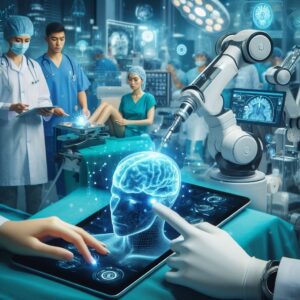Artificial Intelligence in Healthcare: Transforming Care and Diagnosis
Artificial Intelligence (AI) is revolutionizing the healthcare industry, bringing innovations that positively impact patients, professionals, and administrators alike. Let’s explore what AI in healthcare entails, its benefits, and how it’s shaping the future of medicine.
What is AI in Healthcare and How Did It Emerge?
AI is a field of computer science that aims to create systems capable of simulating human abilities. Since the 1960s and 1970s, early AI systems for medicine, such as the prototypes Dendral and MYCIN, paved the way. Today, AI in healthcare spans from computer-aided diagnosis to medical image analysis and disease prediction.
Key Benefits of Applying AI in Healthcare
AI-Assisted Diagnosis: The ability to process and analyze large volumes of information and medical images enables faster and more accurate diagnoses.
Enhanced Patient Experience: AI personalizes care, offering more individualized and precise treatment options.
Efficiency and Resource Management: Automating repetitive tasks frees up professionals to focus on direct patient care.
Drug Research and Development: AI accelerates medical research and the development of new treatments.
Public Health and Disease Surveillance: AI supports outbreak response and healthcare system management.
Technology and Success: Healthcare Professionals Embracing Technology
Physicians, researchers, and administrators are adopting AI to improve service quality and transform healthcare. While AI is a powerful tool, it also faces ethical and regulatory challenges that need to be addressed.
In summary, AI in healthcare is a reality shaping the future of medicine. Its impact is undeniable, and the benefits are evident. Stay ahead of this revolution and explore the possibilities of AI in your clinical practice.
